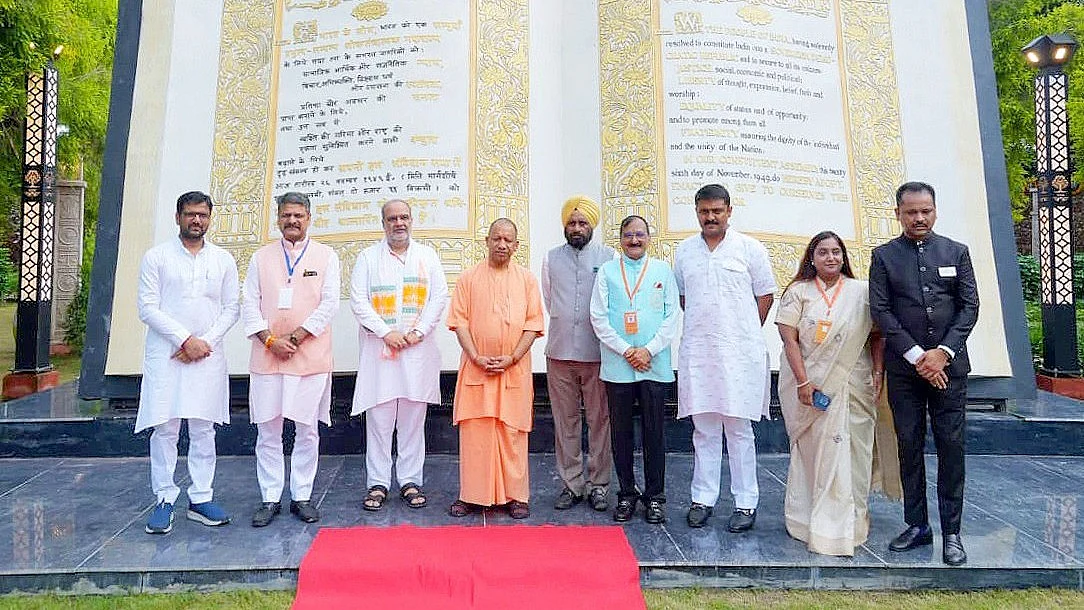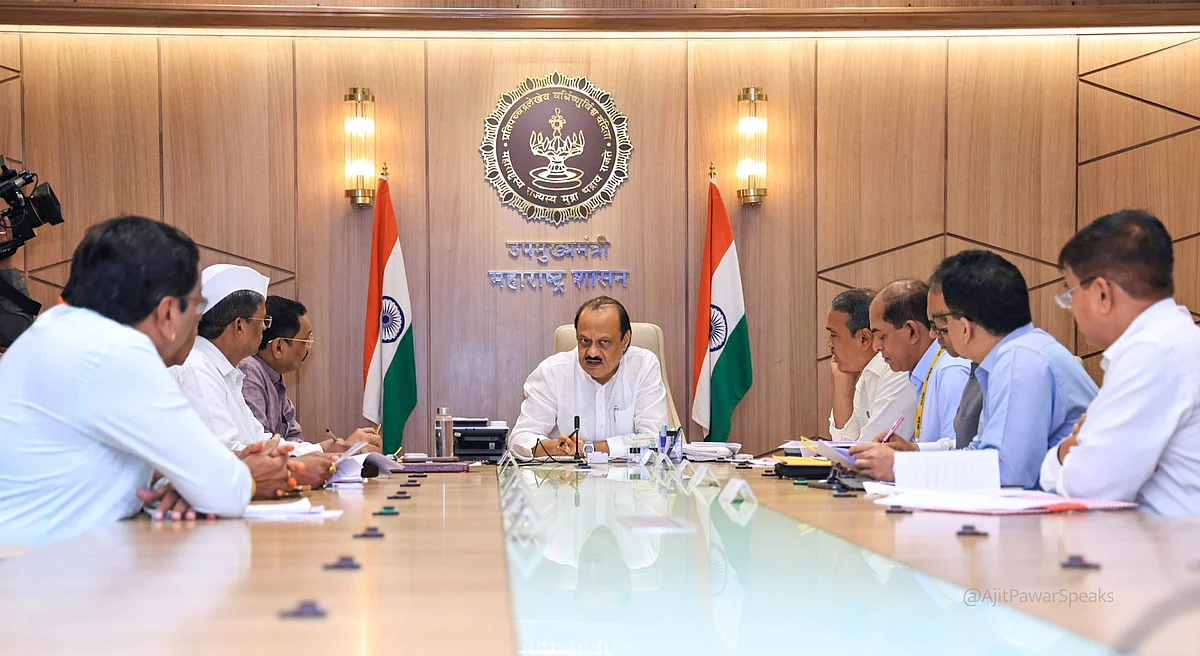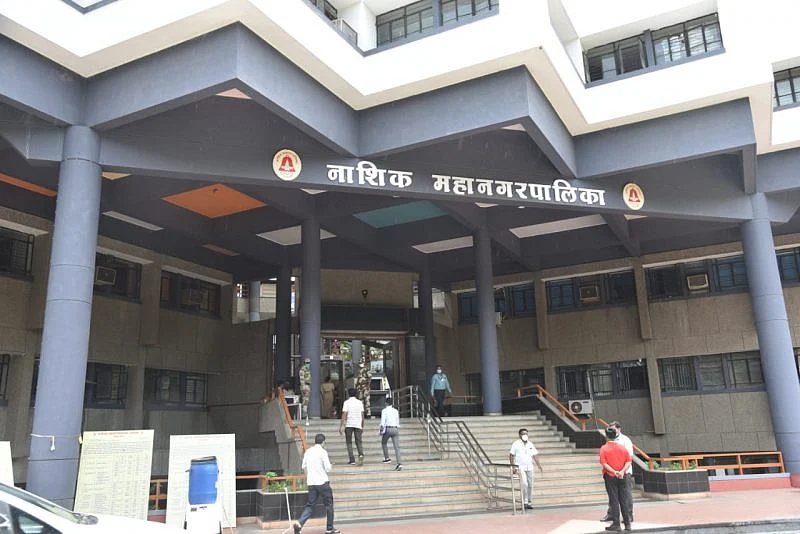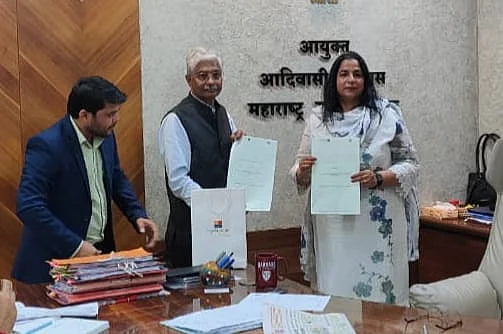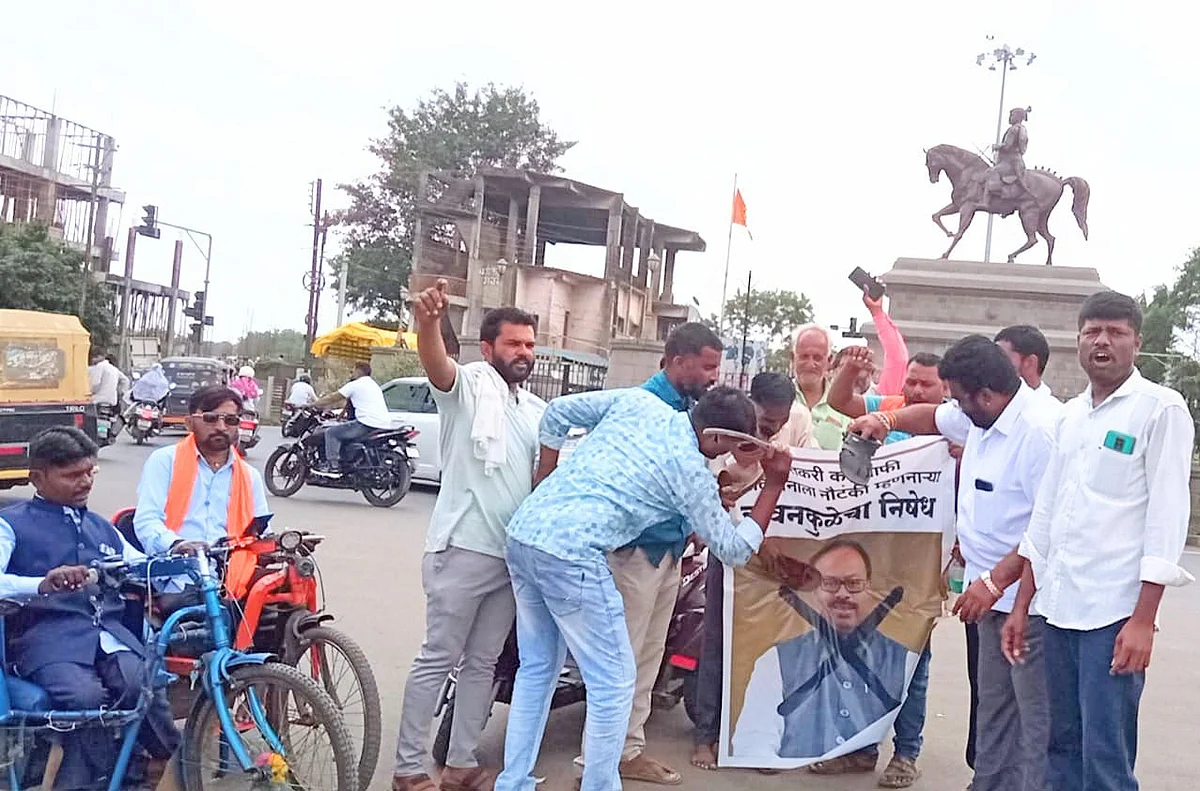When Dr BR Ambedkar advocated inter-dining as a means of eradicating the tyranny of the caste system, he certainly couldn’t have meant that vegetarians and non-vegetarians should not eat together. Yet, that is essentially what the notion of the ‘Pure Vegetarian Restaurant’ amounts to. India is probably the only country in the world where such a divisive notion exists.
The issue is highlighted today by food delivery app Zomato’s contentious idea of a colour code that distinguishes vegetarian food delivery boxes from non-vegetarian ones. Although the hullabaloo that ensued as a result of this move compelled them to roll it back, they still insist on separate boxes for vegetarian and non-vegetarian fare, arguing that vegetarians feel squeamish about non-vegetarian food.
No one can deny the casteist implications of vegetarianism. High-caste Brahmins are supposed to be vegetarian. In UR Ananthamurthy’s novel 'Samskara', Naranappa is excommunicated from the Brahmin Agrahara of Durvasapura because, among other things, he eats meat with low-caste people. In the real world, many housing societies throughout India are reluctant to let meat-eaters buy or rent out flats in their buildings. Although many Hindus, including Brahmins, are non-vegetarian by choice, meat-eating is generally associated with Islam, Christianity, and other minority religions. The Hindus are supposed to believe that only Muslims, Christians, Parsis, Dalits, and Adivasis are meat-eaters in the true sense. Meat-eating here is thought to be any kind of meat, including mutton, beef, and pork, and not just chicken, fish, and eggs. This idea sometimes reaches frivolous proportions, for example, when international airlines refer to an on-board vegetarian meal as a ‘Hindu Vegetarian Meal’.
In the recent xenophobic attack on foreign students offering namaz at Gujarat University, Ahmedabad, one of the reasons for the attack, according to the learned Vice-Chancellor, is that Gujarat, being a vegetarian state (really?), the Hindu students were offended by the carelessly strewn about meat leftovers of the foreign students. This, according to the lady, justifies the violence.
Segregation is a distasteful word. India is already plagued by several kinds of segregation. In the field of school education, the latest trend in states like Maharashtra is that children from the so-called backward classes and castes can no longer seek admission to elite private schools under the Right to Education Act. Instead, they must confine themselves to government schools, which, to many, are synonymous with the shabby schools run by civic corporations, pejoratively referred to as ‘municipal schools’. What we certainly can do without is yet another form of segregation based on the food we eat.
Yet, that is how it has been, especially since 2014. Let us not forget the beef lynchings of Pehlu Khan, Mohammad Akhlaq, and many others that resulted in their deaths. Let us remind ourselves that during the 2021 lockdown, a fanatic Hindu refused to accept his food order from a Muslim delivery boy. At that time, the food delivery app in question responded with the catchy one-liner, “Food has no religion.” And yet, now, three years later, that very food delivery app goes ahead and moots the idea of green delivery boxes for vegetarian food. Does their ‘food has no religion’ dictum still hold true?
The corporate sector is notoriously co-opted by discriminatory practices. In the not-so-recent past, progressive advertisements depicting a Hindu mother-in-law gifting her Muslim daughter-in-law with jewellery, or a lesbian couple celebrating Karva Chauth have had to be withdrawn on account of protests. A famous masala brand scrapped an advertisement where, seated with his elders at the dining table, a little boy innocently blurts out that the paneer masala they are eating is as delicious as chicken masala, much to the horror of the adults at the table.
Hegemonies inevitably work in a one-way direction. If every Udipi restaurant in India proclaims itself to be a ‘Pure Vegetarian Restaurant’, why can’t we equally have other restaurants proclaiming themselves to be ‘Strictly Non-Vegetarian Restaurants’? Yet, when has anyone seen an Indian restaurant with such a sign in our cities? (My students tell me, though, that a Pune restaurant chain now actually uses the tagline ‘Pure Non-Veg’ in all its branches. This is terrific).
The connotations of words are more treacherous than their denotations. Doesn’t ‘pure vegetarian’ connote that those who eat meat are impure? In fact, in Indian English, the term ‘non-vegetarian’ is synonymous with the word ‘obscene’. Hence, the term ‘non-veg’ joke refers to a joke with innuendo and explicit sexual content.
The term ‘Pure Vegetarian Restaurant’ in India is also synonymous with the term ‘Family Restaurant’. A family restaurant is supposed to be one where women and children can safely go. Its opposite is the ‘Bar and Restaurant,’ where alcohol and meat are served, and which are out of bounds to ‘decent’ women and children. The word ‘family’ here is hegemonic. Single men, often queer like myself, can never constitute a family. Yet, families comprising husbands, wives, children, parents, brothers, and sisters can eat in non-family spaces, while single men cannot eat in spaces designated as ‘family’ spaces.
Vegetarianism, then, becomes a scary metaphor for discrimination based on caste, religion, race, gender, marital status, sexual orientation, and so on. Isn’t it about time we dispensed with the word altogether, and invented other non-judgmental vocabulary to describe our culinary and dietary practices?
(The writer is an author and the former head of the English department at Savitribai Phule Pune University)




